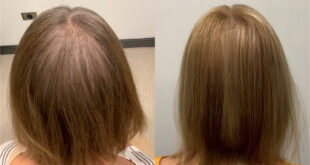By Michael Cohen, Director and Chief of Neurotechnology
 In the wake of the recent worldwide health emergency, a scratchy wool blanket of anxiety has descender over America.
In the wake of the recent worldwide health emergency, a scratchy wool blanket of anxiety has descender over America.
An inevitable symptom of anxiety is disrupted sleep – something many of our clients come to us to help them fix.
Nine million Americans turn to prescription and non-prescription sleep remedies regularly in a desperate quest to get some shuteye, but are they the answer?
According to Matthew Walker, Ph.D., a top sleep researcher and author of Why We Sleep, most sleep meds over time can do more harm than good. Although they may put you to sleep, they might hamper and degrade the quality of your sleep by interfering with your brain’s natural electrical rhythm (EEG).
Sleep stage disruption
In order to sleep well, your brain waves need to be slow and even and able to change as you enter and exit various sleep stages. Medication may “knock you out,” but it can alter your sleep stages.
Interrupted sleep stages can impact cognitive ability, attention span, memory, the ability to learn new things or remember new things you learned the day before, and mood. It’s also believed to interfere with the removal of amyloid proteins, which are linked to Alzheimer’s disease.
Circadian rhythm disruption
Medications also interrupt your circadian rhythm.
The American Sleep Foundation defines circadian rhythm as “…a 24-hour internal clock running in the background of your brain (which) cycles between sleepiness and alertness at regular intervals. It’s also known as your sleep/wake cycle.”
In addition to influencing when you get sleepy and when you feel awake, the circadian rhythm impacts hormone release, eating habits, digestion, body temperature and other important bodily functions.
Whatever your symptoms, this disruption can lead to not getting enough sleep and not feeling rested. Sleep deficits can cause emotional outbursts, poor decision-making, diminished memory and mental acuity and compromised health.
The case against sleeping pills
In Why We Sleep, Dr. Walker devotes a chapter to the downsides of sleep medication.
Below are some of the salient points he covers. These are shortened and paraphrased for brevity:
Sleeping pills:
Impede the brain from achieving the large, deep brainwaves characteristic of good, natural sleep.
Have many side effects including next-day grogginess, daytime forgetfulness, unconscious acts after falling asleep (like sleep eating), slow reaction time during the day, and may negatively impact motor skills (such as driving).
Can cause a “vicious cycle.” You awake groggy, seek out caffeine to stay alert during the day, then have trouble falling asleep because of all the caffeine. You once again need a pill to go to sleep and may even need a higher dose as you build up a tolerance to it.
Can cause “rebound insomnia.” When you stop using the sleep aid, your sleep is far worse than it was before you first used it.
Can by physically addictive.
A safe and effective alternative to sleep medicine
So, what can help you sleep better that is both safe and effective?
Biofeedback.
Today’s biofeedback employs high-technology tools to enhance its effectiveness. Biofeedback can be a potent, non-drug solution for improving sleep that doesn’t “mess with Mother Nature.” One type of biofeedback, neurofeedback, helps the EEG normalize itself and gets your circadian rhythm back on track.
Comprehensive Sleep Program
The Center for Brain Training has developed a comprehensive sleep program. About 75% of people respond well. This program combines neurofeedback with other biofeedback tools and technologies to reduce your reliance on sleep medications, re-set the circadian rhythm and guide you into a natural, healthy and restful sleep habit.
“I couldn’t get over how easily I fell asleep after my fourth session,” said “Joan, 43.
“It had been years since I’d gone to sleep and slept through the night. I felt like I had been reborn.”
To learn more about how we can help improve your sleep, contact my office or go to https://www.centerforbrain.com/conditions/insomnia/.
About Michael Cohen
Michael Cohen is a leading expert in brain biofeedback. For over 20 years he’s worked with clients, taught courses and provided consulting to physicians and mental health professionals around the world.
Welltower Center
550 Heritage Drive, Suite 140, Jupiter, FL 33458
Phone: 561-744-7616, Text: 561-291-9562
www.CenterforBrain.com
 South Florida Health and Wellness Magazine Health and Wellness Articles
South Florida Health and Wellness Magazine Health and Wellness Articles




